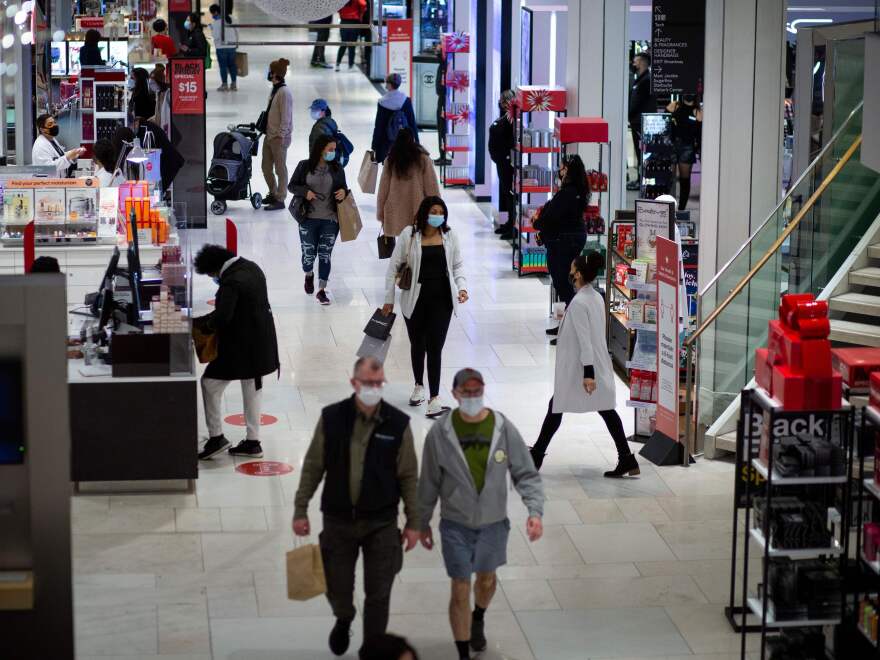U.S. retail spending declined last month for the first time since April, as new coronavirus surges restricted outings to stores and restaurants.
Despite record-setting Black Friday and Cyber Monday shopping sprees, U.S. retail sales dipped 1.1% in November compared to a month earlier, the Commerce Department said Wednesday.
Clothing stores as well as restaurants and bars took the biggest hits last month. Spending there dropped 6.8% and 4% compared to October. Surprisingly electronics and appliance sales also fell even as retailers marked a record-setting start to the holiday shopping season.
U.S. shoppers are on track to spend more than $755 billion during the key end-of-the-year weeks — but many of the sales, in fact, began in October.
After an unusual delay because of pandemic uncertainty, the National Retail Federation is now forecasting that retail sales will grow between 3.6% and 5.2% to their highest level ever during a holiday shopping season. The trade group says shoppers will spend on average $998 on gifts, food, decorations and other holiday items — yearning to feel special in a difficult year.
Malls and food establishments, however, have been hammered by waves of shutdowns and restrictions as the U.S. has struggled to contain the pandemic. Spending at restaurants and bars is down 17.2% compared to last year.
The National Restaurant Association says 110,000 restaurants, or 17% nationwide, have permanently closed during the pandemic, after being in business for an average of 16 years.
Many businesses — and families — have been anxiously watching U.S. lawmakers' protracted debate over extending pandemic aid. Several federal programs, including some unemployment benefits, are expiring at the end of December.
The latest government reports have painted a troubling picture of U.S. economic recovery: The number of people filing new unemployment claims jumped sharply while new hiring slowed more than expected.
The slowing economy comes as lawmakers rush to clinch a new relief deal to help struggling businesses and hurting Americans.
In retail, however, a surge in online shopping has led giants like Amazon and Walmart to go on hiring sprees, especially for people to staff warehouses overflowing with orders. The Labor Department's data, adjusted for seasonal hiring patterns, showed a net loss of 35,000 retail jobs in November, but an increase of 145,000 jobs in transportation and warehousing.
Copyright 2020 NPR. To see more, visit https://www.npr.org. 9(MDAxNDQ2NDAxMDEyNzU2NzM2ODA3ZGI1ZA001))



